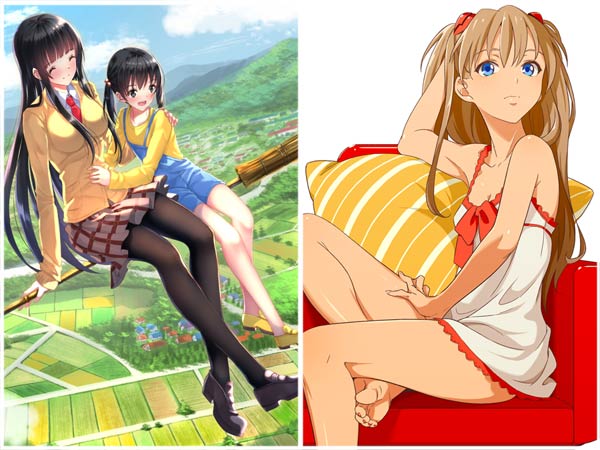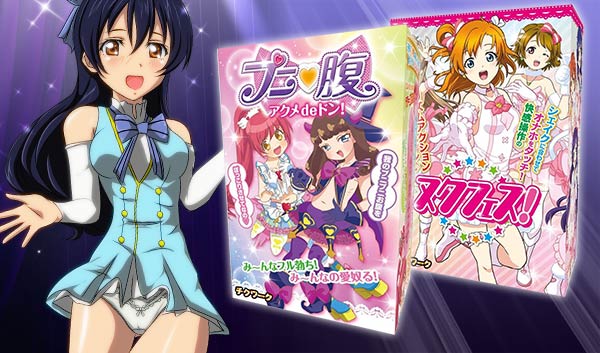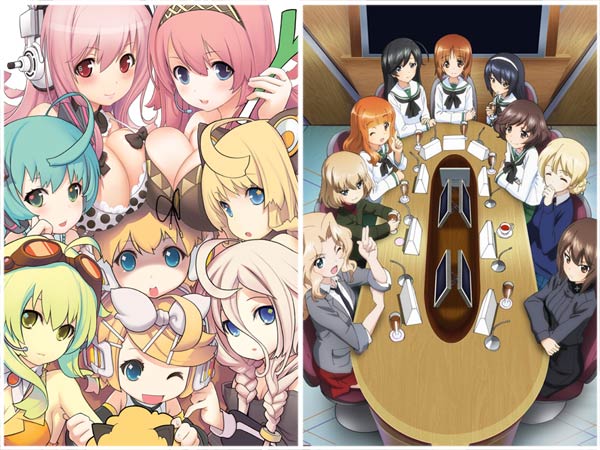One charming anime that’s currently running this season is called Flying Witch, a slow-paced slice-of-life story about a 15-year-old girl named Makoto who comes to live with relatives in rural Aomori, at the top of the main Japanese island of Honshu. The surprise comes when she goes to a shop with her cousin Chinatsu and sees a broom, then proceeds to test it out by sitting on it and flying up into the air, because she’s a member of a semi-secret society of witches living in Japan. The show is an example of what the Japanese call 癒し系 iyashi-kei, translatable as “relaxing” or “healing,” the anime equivalent of drinking a cup of herbal tea with your feet wrapped in hot towels. As with series like Non Non Biyori or the currently airing Kumamiko: Girl Meets Bear, this show celebrates the benefits of rural life, in this case Hirosaki, a beautiful castle town that dates back to 1611. If you need a break from the buzzing devices and the stress of the real world, give Flying Witch a try.
It’s well-known that Japan is one of the most homogeneous countries on the planet, with 98% of the population identifying as pure ethnic Japanese. This is one reason Japan seems to have such a harmonious society to us, with everyone seeming to be pretty much on the same wavelength about things, though of course there’s a lot more variation once you get up close. Groups that are outside of this large majority include zainichi (“residing in Japan”) Chinese and Koreans, who were born there but keep their own citizenship for cultural reasons; Okinawans, who have a related through distinct culture and language; haafu (half Japanese) like my half-American children; and regular old foreigners like me. Another group that doesn’t fit in with Japan’s perfectly ordered society are kikoku shijo (“returned child”), referring to Japanese who’ve spent several years abroad before returning home. These “hybrid Japanese” face special challenges because they’ve been acculturated both to Japan and whatever country they lived in, and have odd sensibilities as a result. They might have trouble keeping up with Japanese school or work life, and they’ll probably come across as “KY,” a Japanese slang word which means kuuki yomenai or “can’t read the air,” meaning out of tune with the various unspoken social signals around them. There are quite a few “returned child” characters in anime, including Ohno from Genshiken, Kudryavka from Little Busters and of course Asuka from Eva, who can’t write kanji and is more comfortable thinking in German.
J-List stocks great “ecchi” toys to help bring your personal fantasy time to life, whatever characters or genres you might be into. We recently posted some great idol parody toys based popular idol anime characters, a fun way to add some extra juice to your private time. See them all here.

















